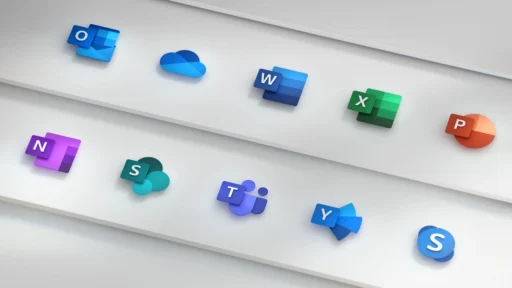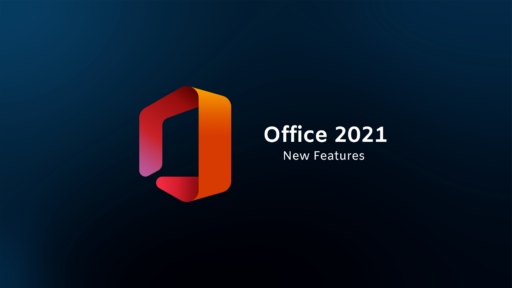Antivirus software is essential for safeguarding your devices against malware, including viruses and ransomware, as well as internet security threats like phishing and spam. It also alerts you to potentially unwanted applications (PUAs) that can compromise your system.
While some experts argue that modern operating systems have robust built-in security features, it’s still crucial to invest in third-party antivirus software, especially if your device isn’t regularly updated. External antivirus programs provide additional protection against cyber threats, particularly phishing and spam attacks.
The rising frequency of real-time cyber attacks underscores the need for comprehensive protection. If you’re hesitant to install third-party antivirus software, consider these compelling benefits of having antivirus protection:
Table of Contents
1. Protection Against Malware
One of the primary benefits of using an antivirus is its ability to protect against malware. This includes a wide range of threats such as viruses, Trojans, worms, rootkits, ransomware, spyware, key-loggers, and adware. Antivirus programs conduct regular scans of system files and downloads to identify and eliminate these malicious threats.

Users receive immediate notifications upon malware detection, with options to report false positives. For instance, software like Malwarebytes can automatically detect and remove malware in the background so that your device remains secure without disrupting your workflow.
2. Enhanced Internet Security
An effective antivirus enhances your online safety by offering extensions for popular web browsers. These extensions actively scan web pages, downloads, and emails for malicious content and attachments. They also protect online transactions by alerting users to fake payment portals that may appear legitimate— a common tactic used in phishing attacks.
Ultimately, the goal of internet security is to ensure that your browsing experience remains safe while interacting with the vast expanse of the World Wide Web.
3. Robust Data Protection
One of the key benefits of strong antivirus software is data security. Tools like Acronis True Image provide advanced data protection, which ensures that your information remains safe even in the event of a cyber attack.
Data protection is especially vital against threats like spyware and ransomware, which can steal sensitive information or lock users out of their systems until a ransom is paid. The antivirus continuously monitors all files on your device, scanning for any anomalies or malicious content.
Additionally, many antivirus programs include customizable firewall settings to oversee both internal and external connections. This feature helps to block or limit applications that consume excessive data. Firewalls monitor all incoming and outgoing traffic within your computer network, and when combined with antivirus protection, they provide an extra layer of security by thoroughly checking every file or piece of data you send or receive online.
4. Preventing Identity Theft
Identity theft, or identity fraud, occurs when someone impersonates another individual using stolen personal information obtained through various methods, such as in-person observation or online phishing. This stolen data can include national identification numbers (e.g., Social Security Number), financial details (like credit card numbers), health records, and even social media credentials.
The antivirus plays a crucial role in preventing identity theft by monitoring user activities and guarding against real-time threats, such as fake websites, malicious attachments, and harmful links.
Many antivirus solutions, such as Avast One, also scan the dark web to alert users if their personal information is being sold. Additionally, some services go a step further by assisting victims with identity restoration or providing identity theft insurance.
5. Safeguarding Confidential Information
Today’s antivirus solutions provide more than just malware protection; they improve security in various ways. Many include features such as password managers for password management and autofill capabilities, virtual private networks (VPNs) for safe and anonymous browsing on public Wi-Fi, dark web monitoring to check for compromised credentials, and encrypted cloud storage for accessible and secure data storage.
Consequently, they help users in avoiding separate subscriptions for every tool and offer a one-in-all package.
6. Performance Optimization
Many antivirus programs come equipped with built-in performance optimization tools that help identify unused system files, duplicate files, registry issues, and unnecessary applications. Additionally, some antivirus solutions, like Kaspersky, offer specific operating modes tailored for activities such as gaming, quiet hours, or low battery situations.
The most significant optimization advantage of antivirus software is its ability to detect excessive resource consumption or data mining by applications, whether installed with or without user consent (such as cryptojacking). This allows users to terminate malicious scripts promptly upon detection by the antivirus.
How to Choose the Right Antivirus Software?
With so many security products on the market boasting similar features and price points, selecting the right antivirus can be challenging. Here are some key considerations to keep in mind while shopping for antivirus protection:
- Ease of Use: Even the most feature-rich antivirus software is only effective if it has a user-friendly interface. Many major antivirus solutions offer free trials or versions, so you can test them before making a purchase.
- Malware Protection: To assess the malware detection capabilities of an antivirus product, refer to independent testing labs like AV-Comparatives or AV-Test for reliable evaluations.
- False Positives: False positives occur when an antivirus mistakenly identifies a harmless application or process as a threat. Software with a high false positive rate can be frustrating, as it may block legitimate applications and disrupt your daily tasks.
- Extra Features: While optional, a comprehensive package that includes a password manager, cloud storage, VPN, and more can be beneficial for most users. Additionally, antivirus programs that offer built-in PC cleaning and performance optimization can help reduce the number of tools you need.
- Compatibility: Be sure that the antivirus is compatible with your device’s operating system and that it supports all your devices, including those of family members.
- Reputation: Alongside expert reviews, consider asking friends or colleagues about their antivirus experiences. Explore platforms like Reddit, Quora, G2, Trustpilot, or the social media pages of antivirus companies to gauge customer support and overall user satisfaction.
Popular Antivirus Software:
There is many premium antivirus software, Avast One, Bitdefender, Malwarebytes and McAfee are top picks.
Do I Need Antivirus for Mac?
macOS offers robust built-in malware protection through features like Gatekeeper and XProtect. Gatekeeper ensures that downloads come either from the App Store or from verified third-party developers who have been notarized by Apple. This process helps prevent malicious attachments from being installed, and it requires user consent before executing any file for the first time.
XProtect functions similarly to traditional malware removal tools. It acts as an ongoing, automatically updated safety net that detects unauthorized changes to applications after they have been approved by Gatekeeper. When XProtect identifies suspicious software, it blocks it and notifies the user, allowing them to choose whether to delete or keep the file.
With Apple’s built-in security measures, users have solid protection for their devices, so third-party antivirus software is generally not necessary. However, internet security is a different matter. If users are not vigilant or well-informed about online threats, installing additional macOS security software can be beneficial.
Is There Any Free Antivirus Available?
Yes, there are free antivirus options available, including Avira, Comodo, and Total AV, among others. However, it’s important to be cautious, as free versions often come with limitations, such as basic features, advertisements, or even data sharing.
For most users, relying on the built-in security features of modern operating systems is often a better choice than using a free antivirus. These native protections provide solid coverage for device security. For those seeking additional features and enhanced protection, subscribing to a premium antivirus solution is recommended.
If you still have questions concerning an Antivirus, please feel free to reach out via our Contact Us page and we would be happy to assist you, thank you for reading!




